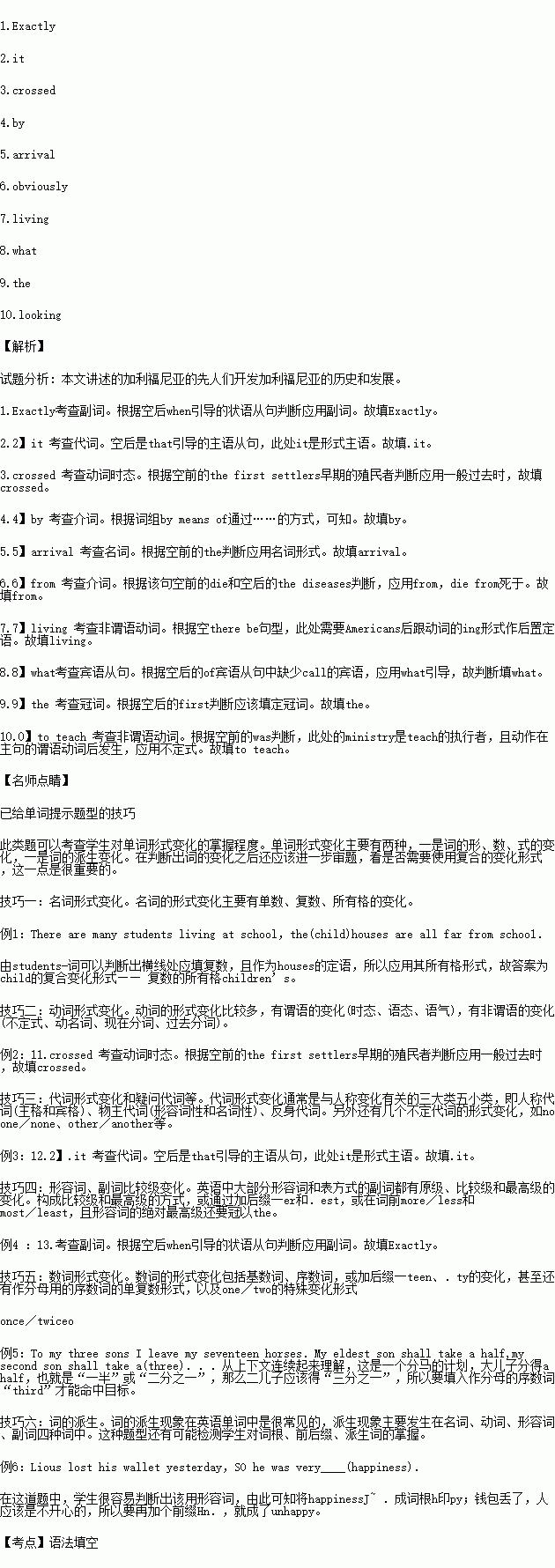题目内容
阅读下面材料,在空白处填入适当的内容(不多于3个单词)或括号内单词的正确形式。
1. (exact) when the first people arrived in what we now know as California,no one really knows. However, 2. is likely that Native Americans were living in California at least fifteen thousand years ago.
Scientists believe that these first settler 3. (cross) the Bering Strait in the Arctic to America 4. means of a land bridge which existed in prehistoric times. In the 16th century, after the 5. (arrive) of Europeans, the native people suffered greatly. Thousands were killed or forced into slavery. In addition, many died 6. the diseases brought by Europeans. However, some survived these terrible times, and today there are more Native Americans 7. (live) in California than in any other state.
In the 18th century, California was ruled by Spain. Spanish soldiers first arrived in South America in the early 16th century. Two centuries later, the Spanish had settled in most parts of South America and along the northwest coast of 8. we now call the United States. Of 9. first Spanish to go to California, the majority were religious men, whose ministry was 10. (teach) the Catholic religion to the natives.

